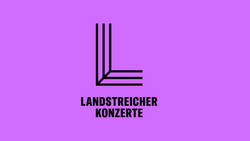Tara Nome Doyle live in der Kantine am Berghain ✨
In the organizer's words:
Tara Nome Doyle, the unique and subtle self-made prodigy from Berlin, presents her third album Ekko. It is a journey into the distance, where new things await, and into the interior, where old things rage. Pain, farewell, arrival and acceptance characterize the half hour, which convinces with delicate clarity and anthemic choruses like in Lighthouse, Bad Days and Dive In. Big pop feelings meet intimate spaces here.
After two concept albums, Ekko is freer. Alchemy, her debut at the beginning of 2020, followed the four phases of pre-modern natural philosophy, while Værmin in 2022 dedicated each song to a different reptile. Concepts are often railings to hold on to during the unprotected ascent of any artistic work. But it feels all the better when you can do it without much help. Ekko is starting to feel like Tara Nome Doyle's first free climb. The songs now want to and can stand, climb, hike and grow hands-free.
Liberation also includes reduction. Tara largely produced the album herself, supported by her co-producer and two-time Grammy winner Simon Goff (The Joker, Chernobyl) and Gunnar Örn Tynes (múm). Voice, piano, guitar, strings, a Mellotron and analog synthesizers characterize the sound. And before she had the cellos notated, she recorded each of the string parts herself.
The keywords " antique" and "self" are the keys to opening up the independence of the new songs to the outside world. And both keys are attached to the same collar: Tara looks into the interior of her artistic personality on Ekko, and leaves these spaces threatened by fears and doubts with stories from antiquity that show a way out. The attempt at self-reflection that is never missing in good art: nowhere is it heard more clearly than in Lighthouse: "You learned to cut yourself up / into bite-sized portions / praised for when you bow your head / in sweet devotion / cause everybody loves a thornless rose / but that's not how they grow."
How conformist you want or need to be is a question that not only female musicians are concerned with. And this is where antiquity comes into play, the figures of Narcissus and the mountain nymph Echo. Narcissus constantly falls in love with his reflection, the nymph Echo was condemned to repeat the words of others - extremes between individualism and conformity that seem more relevant than ever in the digital world.
What survives with the nymph Echo - or Ekko, as Tara Nome Doyle writes, because she encountered the myth in an essay by the Norwegian Lena Lindgren (Tara grew up speaking Norwegian, Irish and German) - is the realization that repeating things is part of being human. To imitate things that others have already imitated. That doesn't have to be a disadvantage, it's in the nature of cultural transmission, others call it tradition. But every handover brings with it the opportunity for change. And this is where the pipe leads out of the ancient background directly into the present...
Ekko, the album, also tells us that you can only develop as a personality or as an artist when you let go of the idea of being a special personality, a special artist. Or having to be. In order to find yourself anew, you first have to lose yourself.
The great thing is that Tara Nome Doyle has already found clear melodies and concrete images for such complex, lifelong processes at the age of 27. Or as it says in Dive in: "Soon as you think you've made it / life comes with all its changes / unsullied dreams have faded / left yearning for some way to make amends / before lights end."
The unsullied dreams of what it means to be a human being or a singer have faded. It was probably always the dreams of others that she saw in the mirror. Or on the surface of the water, like Narcissus. Now the waves are there, destroying the reflection, and the sea is roaring. You can hear it when you press a shell to your ear, can't you? Just like Tara Nome Doyle, who is wearing seashell headphones on the cover. And she knows: what you hear is the sound of your own blood, the echo from your own body.
This content has been machine translated.Location
Organizer














